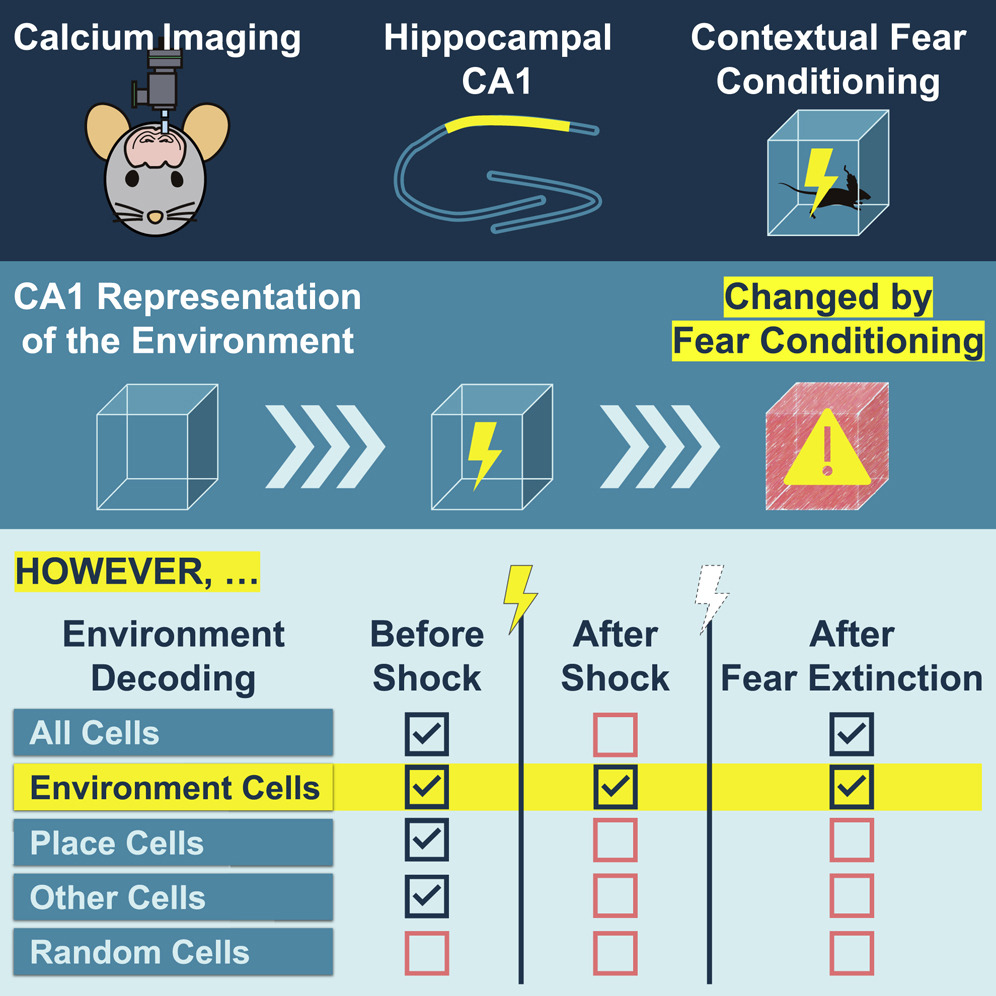How do we steadily recognize environments we are in while experiencing joy or possibly trauma? A recent publication by Dr. Kyogo Kobayashi and Dr. Naoki Matsuo from Kyushu University addressed this question of how animals code environmental information, i.e., spatial contextual memory in the brain, distinct from episodic memories.
Using the Inscopix nVista miniscope, the authors performed longitudinal calcium imaging of dorsal hippocampal CA1 neurons in mice and conducted extensive secondary analysis on data collected from 1,500 CA1 neurons. Their results show that the dorsal hippocampus plays a critical role in the stable retention of information about the environment, in addition to evoked emotions. This study, entitled Persistent representation of the environment in the hippocampus, was published in Cell Reports, in January 2023.
Drs. Kobayashi and Matsuo used a contextual fear conditioning behavioral task, which requires hippocampus-dependent learning, in which mice associate a specific context with an aversive stimulus. They demonstrated that CA1 neurons were generally involved in fear conditioning, as well as extinction conditioning. Despite the activities of most CA1 neurons being fear-susceptible, the authors identified a group of neurons whose activities were not specific to fear. This group of neurons was also distinguishable from place cells that code an animal’s location in an environment with reliance to a certain degree, on the animal’s emotional state. Further decoder modeling showed that this novel subset of neurons called environment cells were consistently active in a certain environment but independent of the emotional responses triggered therein. That is, the activities of environment cells could predict the environment with which the mice were exposed. The authors posit that environment cell activities may represent the stability of memory, in contrast to other CA1 neuronal plasticity that updates memory such as fear. We congratulate Drs. Kobayashi and Matsuo for this extraordinary analysis on the heterogeneity of hippocampal neurons, and look forward to learning more from their research efforts in Japan.
Dr. Mariko Nishibe, PhD, is our Inscopix Field Scientific Consultant dedicated to customer success in Japan. She brings a wealth of knowledge to the team with her vast expertise in neurophysiology & neuroplasticity in brain injury and chronic pain models in mice, rats, and NHPs. We are thrilled to have Mariko contribute to the successes of the Inscopix miniscope community!
